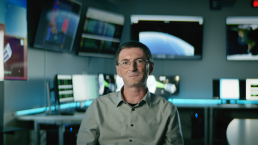
The majority of Germans think UFOs are just something for weirdos. Researchers see things differently. Hakan Kayal, Professor of Astronautics at the University of Würzburg, is one of them. He advocates an unbiased approach to the subject and is investigating so-called UAPs (Unidentified Aerial Phenomena) with the help of artificial intelligence. After all, there are flying objects with remarkable characteristics that are spotted by radar systems, cameras and well-trained pilots - and for which even the U.S. military has no explanation. Barack Obama spoke publicly of the existence of "unknown airspace phenomena." A new Pentagon task force to specifically collect and analyze EAP sightings has been created: These are the ingredients that have given new impetus to one of the great questions of humanity: Are we alone in the universe?
Fest steht: In einem Bericht des US-Verteidigungsministeriums wird 2021 die Existenz von unbekannten Flugobjekten offiziell bestätigt, dass dahinter Aliens stecken könnten, jedoch mit keinem Wort erwähnt.
Gleichzeitig vollzieht sich in den Wissenschaften ein bemerkenswerter Paradigmenwechsel. Immer mehr Forschende halten die Existenz außerirdischen Lebens für wahrscheinlich. Was ist dran an solchen Hypothesen? Und wo steht die Forschung bei der Suche nach extraterrestrischem Leben?




























